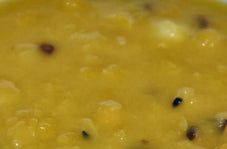Omega Seeds
 0
0
 2013-11-19
2013-11-19

OMEGA SEEDS
Omega Seeds are seeds that are rich in essential fatty acids, essential because the body does not produce them, making it important to get them from food or from supplements. Fatty acids are made up of chains of carbon, hydrogen and oxygen atoms. The different fatty acids differ in their health effects. Omegas are another name for monounsaturated (omega-9 fatty acid) and polyunsaturated (omega-3 and omega-6) fats. Unlike omega-3 and omega-6, omega-9 fatty acids are not essential fatty acids because the body can produce omega-9 fatty acids from unsaturated fat.
Omega-3 fatty acids are found in flaxseed, canola and soybean oils, and walnuts; also in fishes such as herring, mackerel, salmon, tuna and trout. Omega-6 fatty acids are found in canola, corn, peanut, safflower, soybean and sunflower oil, red meat, poultry and eggs and in nutritional supplements. They are also available in ready to eat products such as Omega seed mix.
It is important to strike a balance between omega-3 and omega-6 fatty acids in the diet so as to get the health benefits of both. An imbalance or excess omega-6 fatty acid is not recommended since omega-6 promotes inflammation and could contribute to the development of heart diseases, cancer and joint problems.
The primary omega-9 fatty acid is oleic acid which is found in canola, olive, peanut, safflower and sunflower oil; among fruits in avocados and olives and among nuts in almonds, cashews, macadamias, peanuts, pecans, pistachios and walnuts.
NUTRITIONAL VALUE
The National Institutes of Health recommends that people consume at least 2% of their total daily calories as omega-3 fats. Some omega seeds and their nutritional values: Quarter cup pumpkin seeds contain: protein - 8.5g; carbohydrates - 6g (1.35g fiber); omega-6 - 7.14g; omega-3 - 0.06g. Quarter sesame seeds contain: protein - 6.4g; carbohydrates - 8.5g (4g fiber); omega-6 - 7.68g; omega-3 - 0.12g. Quarter sunflower seeds contain: protein – 8.2g; carbohydrates – 6.75 (3.8g fiber); omega-6 – 12g, also contains good amount of minerals and vitamin E. 1 oz. chia seeds contain: protein - 4g; carbohydrates - 12g (11g fiber); omega-6 - 1.6g; omega-3 – 4.9g. 2 tbsp flax seeds contain: protein – 3.8g; carbohydrates – 6.6g (5.4g fiber); omega-6 – 0.8g; omega-3 - 3.5g. 100g hulled hemp seeds contain: protein – 30.6g; carbohydrates – 10.9g (6g fiber); omega-6 – 28g; omega-3 – 8.2g.
HEALTH BENEFITS
Fatty acids are the building blocks of fats. Despite their misunderstood reputation they are vital nutrients and have health benefits -
- Essential in development of brain, nervous system, retina in babies during pregnancy.
- Contain lignans (natural antioxidants) that reduce the activity of cell-damaging free radicals, slow the aging process, and increase overall wellness.
- Reduces inflammation and joint pain
- Helps in managing depression
- Prevents dry eyes
- Helps lower bad cholesterol
- Helps in controlling high blood pressure
- Protects bone health
- Regulate blood clotting
- Promote cell development and support cell health
- Prevent coronary heart disease
- Prevent stroke
- Prevent diabetes
- Promote healthy nerve activity
- Improve vitamin absorption
- Maintain a healthy immune system.
STORAGE
Whole flaxseed can be kept in a jar handy on your kitchen counter. Ground flaxseed can be refrigerated (best before 90 days) or frozen (for longer shelf life). Flaxseed oil should be refrigerated and usually has an expiration date about four months after pressing. Sesame seeds can be roasted and stored. Store other seeds in air-tight dry containers.
HOW TO CONSUME
Add walnut-flaxseed combination to salads, baked potatoes or granola. Ground your flaxseed shortly before eating to provide benefits. Toss a tablespoon of poppy, pumpkin or sesame seeds into oatmeal, breads, and salads. A flaxseed mixture can be used as an egg substitute in selected recipes like pancakes, muffins and cookies. For every egg, replace with 1 tsp of milled flax and 3 tbsp of water. Mix milled flaxseed and water in a small bowl and let sit for 1 to 2 minutes. Sunflower seeds can be eaten raw.
PRECAUTIONS
Foods containing omega-3 fatty acids have health benefits but some of them like oils and nuts might be high in calories. It is advisable to eat them in moderation. Commercial roasting is done at high temperatures. So it is recommended to eat raw nuts and seeds or soak the seeds before roasting or dehydrating them. In case of roasting nuts, do so gently - in a 160-170 degree oven for 15-20 minutes - to preserve the goodness. For young children, no more than one-quarter tablespoon of flaxseed daily is recommended.

 Joybynature.com Team
Joybynature.com Team

